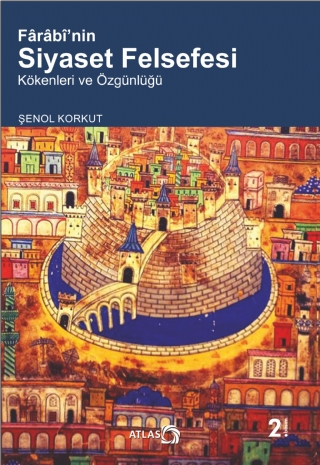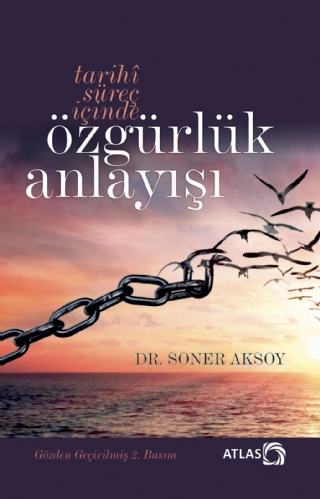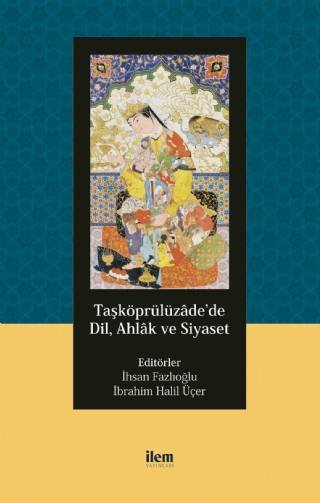Society and Political Philosophy \ 1-1

This book examines the political philosophy of the Second Muallim Fârâbî in terms of its origins and originality.
Fârâbî, who built the political science and philosophy in Islamic thought as a science, also pursued a series of alternative political theories to the political thought of the Athenian-oriented Greek philosophy. Al-Farabi, who built a unique political philosophy between the political elements brought by the revelation of Islam and the ancient Greek political philosophy, on the one hand brought new problem areas to political philosophy, on the other hand, he brought a new horizon to Islamic thought with the doctrine of virtuous and virtuous cities. It is possible to see the virtuous and immoral perspectives developed by the philosopher on the ground of philosophy, nation and medina, in all the problem groups he examines about political philosophy. In this book, on the one hand, virtuous philosophy, virtuous religion and the idealized philosophical adventure of the virtuous city are examined, on the other hand, the story of corrupt philosophy, corrupt religions and unvirtuous cities in the philosophical filter of the Second Teacher is discussed.
Fârâbî, who built the political science and philosophy in Islamic thought as a science, also pursued a series of alternative political theories to the political thought of the Athenian-oriented Greek philosophy. Al-Farabi, who built a unique political philosophy between the political elements brought by the revelation of Islam and the ancient Greek political philosophy, on the one hand brought new problem areas to political philosophy, on the other hand, he brought a new horizon to Islamic thought with the doctrine of virtuous and virtuous cities. It is possible to see the virtuous and immoral perspectives developed by the philosopher on the ground of philosophy, nation and medina, in all the problem groups he examines about political philosophy. In this book, on the one hand, virtuous philosophy, virtuous religion and the idealized philosophical adventure of the virtuous city are examined, on the other hand, the story of corrupt philosophy, corrupt religions and unvirtuous cities in the philosophical filter of the Second Teacher is discussed.

Introduction to Philosophy is written for those seeking an introduction to philosophy as a discipline and intellectual activity. The work aims to make this introduction by introducing philosophy itself, its basic concepts, trends and subjects, and ways of thinking and reasoning specific to philosophy. In the work, which consists of eight chapters, after a first chapter that aims to establish an acquaintance with philosophy, issues related to epistemology, philosophy of science, philosophy of being, ethics, political philosophy, philosophy of religion and philosophy of art are included.
Introduction to Philosophy appeals to all those who want to meet philosophy and want to include philosophy, which we can define as "thinking on big questions in an argumentative and questioning way", into their lives in some way. Written for future teacher candidates. The most important feature of the work is that it deals with the subjects of philosophy with a constructivist approach, that is, the book, Introduction to Philosophy, has been created by using diagrams and visual materials in a way that will enable the student to think about philosophical questions and problems and make the necessary inquiries, instead of conveying ready-made information about the subjects and problems of philosophy.
Introduction to Philosophy appeals to all those who want to meet philosophy and want to include philosophy, which we can define as "thinking on big questions in an argumentative and questioning way", into their lives in some way. Written for future teacher candidates. The most important feature of the work is that it deals with the subjects of philosophy with a constructivist approach, that is, the book, Introduction to Philosophy, has been created by using diagrams and visual materials in a way that will enable the student to think about philosophical questions and problems and make the necessary inquiries, instead of conveying ready-made information about the subjects and problems of philosophy.

In today's world where the expressions of the imagination of civilization are used frequently, it is necessary to realize that civilization is and can be based on a philosophical unity and harmony in order for the actual content and meaning of this term to be realized.
Civilization and Philosophy is a study that brings up the mutual relations of these two fields and what they owe to each other. It seems to be an invitation to examine and scrutinize these areas. The studies brought together in this book, which can be read as a landmark on the way to reach the philosophical consciousness of our civilization and to make a philosophical critique, had previously reached a limited audience as articles, papers and conferences. Now, this issue, which is one of the main agenda items of Turkish Thought, is presented to the attention of a wider readership.
We hope that this work will be an opportunity to realize that the idea of a civilization without philosophy would be wrong.
Civilization and Philosophy is a study that brings up the mutual relations of these two fields and what they owe to each other. It seems to be an invitation to examine and scrutinize these areas. The studies brought together in this book, which can be read as a landmark on the way to reach the philosophical consciousness of our civilization and to make a philosophical critique, had previously reached a limited audience as articles, papers and conferences. Now, this issue, which is one of the main agenda items of Turkish Thought, is presented to the attention of a wider readership.
We hope that this work will be an opportunity to realize that the idea of a civilization without philosophy would be wrong.

Objecting is an important act of courage that not everyone uses. This action has an important place in the life of thinking people. Those who use their minds may prefer to criticize while thinking and to judge when necessary. While some object to it from within, others express it. That's what I like to express without hesitation. Actually, I don't want to make it seem like a person to accept everything that is said, read or even see, and swallow it like a pill without question.
My purpose is not to mean a blind person who opposes everything that comes his way without thinking, back and forth, constantly objecting. I think that transferring the protest action with a reasonable and balanced approach can yield good results. This is a trait we expect from our intellectuals in particular. It should be done in order to tell the truth, to tell what is right without hesitation, to reveal any mistakes or mistakes, and to illuminate a view from a different perspective in order to seek the truth and the better.
Unfortunately, there is such a disease in our country. A secret virus implanted in minds when they were younger. It is almost a secret way of stopping development, growth, change, shooting ourselves in the foot, destroying the creative qualities of our children, killing the excitement and reducing productivity! There is a strong need for an education and training system that kills this hidden virus of society. What we need is serious and responsible for events; They are brave and virtuous young people who do not approach cynically, question, judge, try to learn why and why, and know how to object.
My purpose is not to mean a blind person who opposes everything that comes his way without thinking, back and forth, constantly objecting. I think that transferring the protest action with a reasonable and balanced approach can yield good results. This is a trait we expect from our intellectuals in particular. It should be done in order to tell the truth, to tell what is right without hesitation, to reveal any mistakes or mistakes, and to illuminate a view from a different perspective in order to seek the truth and the better.
Unfortunately, there is such a disease in our country. A secret virus implanted in minds when they were younger. It is almost a secret way of stopping development, growth, change, shooting ourselves in the foot, destroying the creative qualities of our children, killing the excitement and reducing productivity! There is a strong need for an education and training system that kills this hidden virus of society. What we need is serious and responsible for events; They are brave and virtuous young people who do not approach cynically, question, judge, try to learn why and why, and know how to object.

Taşköprülüzâde, one of the most prolific names of the Islamic tradition of thought in the 16th century, on the one hand gives a true representation of his era, which is called the Late Renewal Period and which stands out with its methodological integration efforts, on the other hand, stands out as a complete heir to the scientific knowledge produced in previous periods. In this respect, he reconsidered the main problems that developed within the traditions of theology, philosophy and mysticism, which he inherited, in accordance with the gradual understanding of knowledge and reality of his age, and brought a holistic view to different fields of theoretical and practical thought with the works he wrote.
This book, on the one hand, reveals Taşköprülüzâde's contributions to the field of practical philosophy through the basic concepts of political and moral thought, on the other hand, it shows the ways in which the thinker deals with the tradition of Islamic linguistics and its main problems by focusing on the linguistics tradition. In addition, in the book, the reader will have the opportunity to observe the practical politics of Taşköprülüzâde, who is also a judge, by seeing how Taşköprülüzâde has contributed to the polemic literature that can be considered current in terms of the thinker's refusal against the Jews.
This book, on the one hand, reveals Taşköprülüzâde's contributions to the field of practical philosophy through the basic concepts of political and moral thought, on the other hand, it shows the ways in which the thinker deals with the tradition of Islamic linguistics and its main problems by focusing on the linguistics tradition. In addition, in the book, the reader will have the opportunity to observe the practical politics of Taşköprülüzâde, who is also a judge, by seeing how Taşköprülüzâde has contributed to the polemic literature that can be considered current in terms of the thinker's refusal against the Jews.

Taşköprülüzâde Ahmed Efendi left his mark on Ottoman thought as a versatile scholar. In this book, besides examining the life story of Taşköprülüzâde in detail, we tried to position him in his family, starting with his grandfathers, to describe him in the context of his teachers, peers and students, to classify and introduce his works. We included the life stories of three generations of the Taşköprülüzâdeler family and tried to write a collective life story. We have published an unknown work of Taşköprülüzâde that contains autobiographical records. In addition, the relations of the members of four generations of the family with the bureaucracy of the period were discussed in a separate article. The story of Taşköprülüzâde, which is told here and discussed in a broad framework about how an Ottoman scholar grew up and how he produced, claims to present a model for the writing of the "ulema biography" and the studies of the ulema. Our study, in a more general sense, is a candidate to be a cornerstone in the studies of Ottoman ilmiye with its "ulema family monograph" feature.